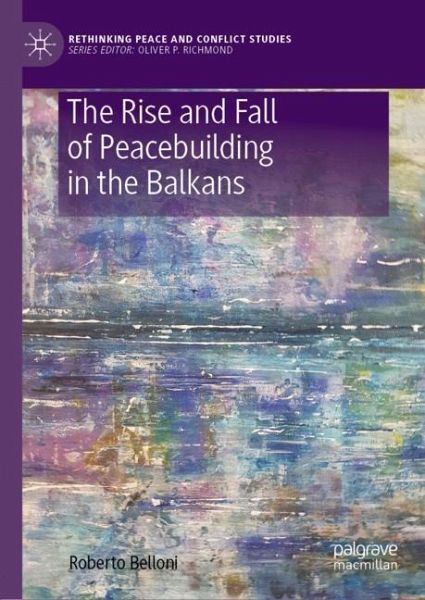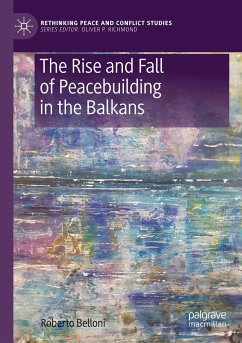
The Rise and Fall of Peacebuilding in the Balkans
Versandkostenfrei!
Versandfertig in 6-10 Tagen
68,99 €
inkl. MwSt.
Weitere Ausgaben:

PAYBACK Punkte
34 °P sammeln!
This book examines the evolution of liberal peacebuilding in the Balkans since the mid-1990s. After more than two decades of peacebuilding intervention, widespread popular disappointment by local communities is increasingly visible. Since the early 2010s, difficult conditions have spurred a wave of protest throughout the region. Citizens have variously denounced the political system, political elites, corruption and mismanagement. Rather than re-evaluating their strategy in light of mounting local discontent, international peacebuilding officials have increasingly adopted cynical calculations ...
This book examines the evolution of liberal peacebuilding in the Balkans since the mid-1990s. After more than two decades of peacebuilding intervention, widespread popular disappointment by local communities is increasingly visible. Since the early 2010s, difficult conditions have spurred a wave of protest throughout the region. Citizens have variously denounced the political system, political elites, corruption and mismanagement. Rather than re-evaluating their strategy in light of mounting local discontent, international peacebuilding officials have increasingly adopted cynical calculations about stability. This book explains this evolution from the optimism of the mid-1990s to the current state through the analysis of three main phases, moving from the initial 'rise', to a later condition of 'stalemate' and then 'fall' of peacebuilding.












